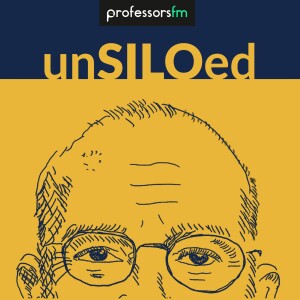
192. The Rise of Superbug Infections and the new therapies that might kill them feat. Steffanie Strathdee
 2022-09-30
2022-09-30
Epidemiologist Steffanie Strathdee and her husband, psychologist Tom Patterson, were vacationing in Egypt when Tom came down with a stomach bug. What at first seemed like a case of food poisoning quickly turned critical, and by the time Tom had been transferred via emergency medevac to the world-class medical center at UC San Diego, where both he and Steffanie worked, blood work revealed why modern medicine was failing: Tom was fighting one of the most dangerous, antibiotic-resistant bacteria in the world.
Steffanie joins Greg this episode to discuss solving her husband's medical crisis, and what she learned from this horrific experience. They also discuss how Covid has ramped these trends up, how critical phages are for our bodies, and the open mindedness of PhDs vs MDs.
Steffanie is Associate Dean of Global Health Sciences and Harold Simon Distinguished Professor in the Department of Medicine at the University of California San Diego School of Medicine. She is also an Adjunct Professor at Johns Hopkins and Simon Fraser Universities. She co-directs UCSD’s new center for Innovative Phage Applications and Therapeutics (IPATH), Global Health Institute and the International Core of UCSD’s Center for AIDS Research. Stefanie has co-authored her memoir all about her husbands illness titled, “The Perfect Predator: A Scientist's Race to Save Her Husband from a Deadly Superbug.”
[30:40] What we need to do is build a phage library that maps onto a superbug library. And, of course, these are going to be constantly needing to be updated because these are organisms that are co-evolving to attack one another.
What's the future looking for the advancement of phage
[37:55] I can imagine a situation in the future, though, where, because we have, sequencers that are portable and cheaper than ever before, that you'd be able to sequence a phage and sequence a bacteria and be able to have a database to say, okay, you know, this phage will match that bacterium or to even genetically modify or synthesize a phage. So in a 3D printing model, some of my colleagues in Belgium have, you know, been working on that. So, I think that there's going to be advances that are going to help us make this work. But right now, we need phage libraries. We need more investment in clinical trials.
Pushing beyond boundaries leads to discovery
[39:49] When your back is up against the wall, whether it's you as an individual, us as a society, or a planet, we can sometimes have creative ideas to come up with solutions that we wouldn't otherwise do. And that's what I'm hoping that we'll do now because both climate change and antimicrobial resistance are colliding.
- Faculty Profile at UC San Diego
- Faculty Profile at John Hopkins Bloomberg School of Public Health
- Professional Profile at Canadian Association for Global Health
- Steffanie Strathdee on LinkedIn
- Steffanie Strathdee on Twitter
- Steffanie Strathdee on Instagram
- Steffanie Strathdee on TEDxNashville
- Steffanie Strathdee on Google Scholar
- The Perfect Predator Website
More Episodes
 2023-01-24
2023-01-24
Create your
podcast in
minutes
- Full-featured podcast site
- Unlimited storage and bandwidth
- Comprehensive podcast stats
- Distribute to Apple Podcasts, Spotify, and more
- Make money with your podcast
It is Free
- Privacy Policy
- Cookie Policy
- Terms of Use
- Consent Preferences
- Copyright © 2015-2024 Podbean.com





